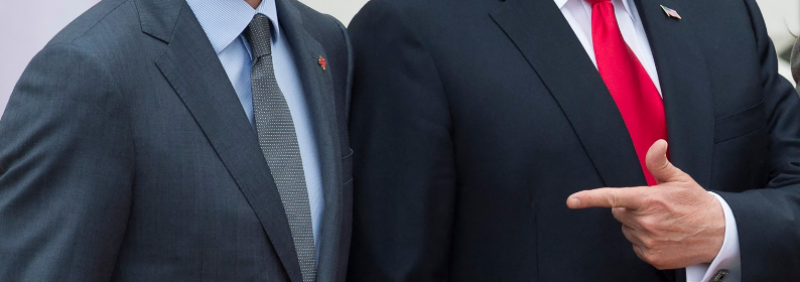Trump Held Talks With Trudeau Says Report
It’s a story that’s equal parts audacity and amusement: a high-stakes meeting between President-elect Donald Trump and Canadian Prime Minister Justin Trudeau took an unexpected turn when Trump floated the idea of Canada becoming the 51st state.
What started as a tense negotiation over tariffs, border security, and trade deficits ended with an eyebrow-raising suggestion that sparked nervous laughter across the dinner table.
The meeting, held last Friday at Mar-a-Lago, came after Trump threatened sweeping 25% tariffs on Canadian goods. The move was intended to pressure Canada and Mexico to curb the flow of illegal immigrants and drugs across the border—a recurring theme in Trump’s policy narrative.
Trudeau’s unexpected arrival underscored the gravity of the situation for Canada’s economy, which could face significant strain under such tariffs.
Sources at the table describe Trump’s approach as direct but sprinkled with his characteristic flair for theatrics. After highlighting Canada’s alleged failures to curb drug and immigration flows—pointing to illegal entrants from over 70 countries—Trump pivoted to the trade deficit, which he pegged at over $100 billion.
The president-elect didn’t mince words, warning Trudeau that if these issues weren’t resolved, he’d implement the tariffs immediately upon taking office.
The tension reached a crescendo when Trudeau protested that such tariffs would devastate Canada’s economy. Trump’s retort? If Canada’s survival hinges on what he deemed "ripping off" the U.S., perhaps it should consider becoming part of it.
The suggestion of statehood caught Trudeau—and seemingly everyone else—off guard, eliciting nervous laughter. Trump doubled down, humorously proposing that Canada could split into two states: one liberal and one conservative. The prime minister, he joked, could trade his title for that of governor.
Despite the levity, Trump’s message was clear: he expects concrete action on border security and trade by the time he assumes office. While the dinner ended on a friendly and positive note, sources indicate that the idea of statehood was likely a rhetorical flourish rather than a serious proposition.

